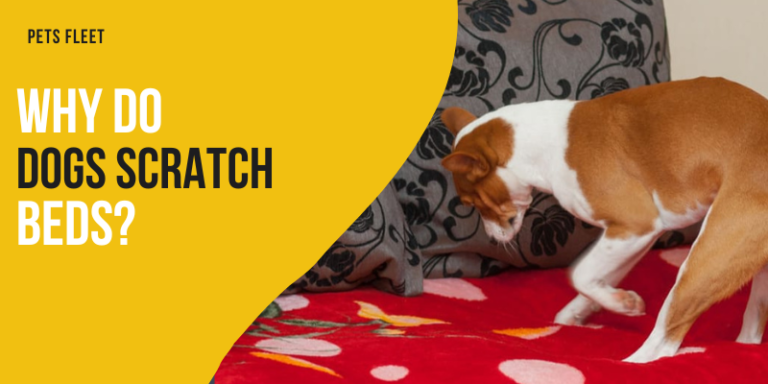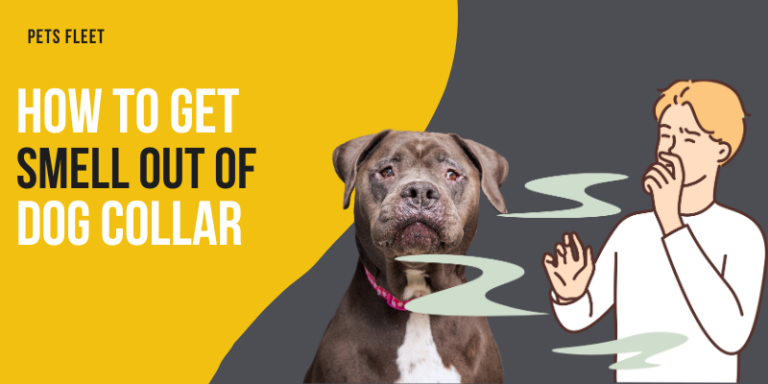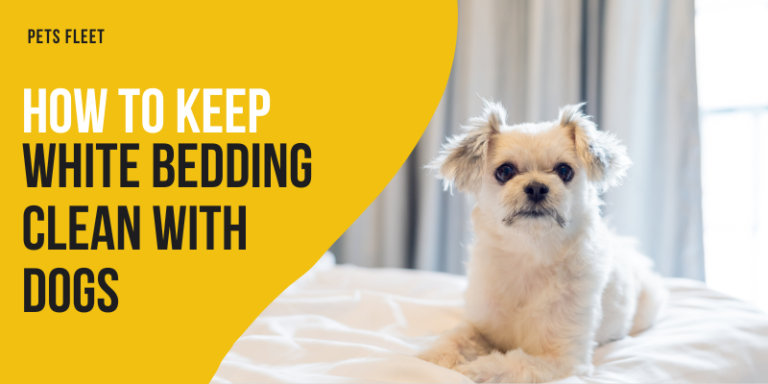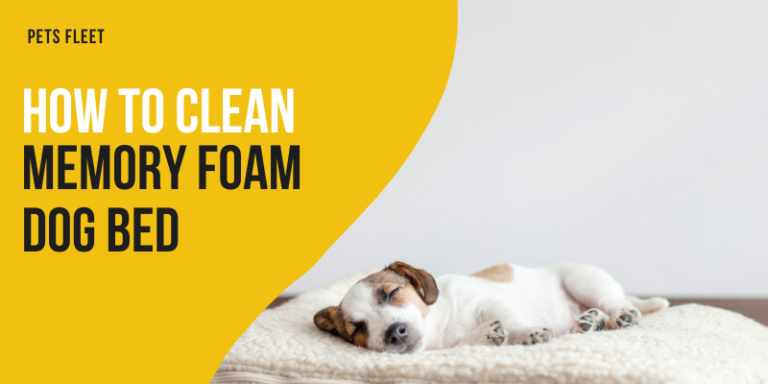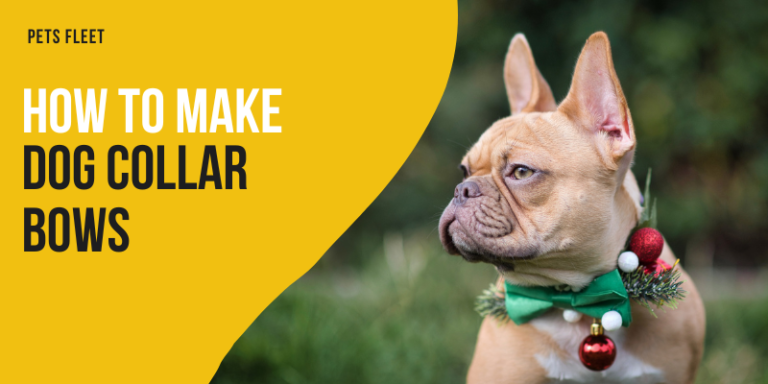How To Keep Dog From Chewing Bed – 10 Best Ways
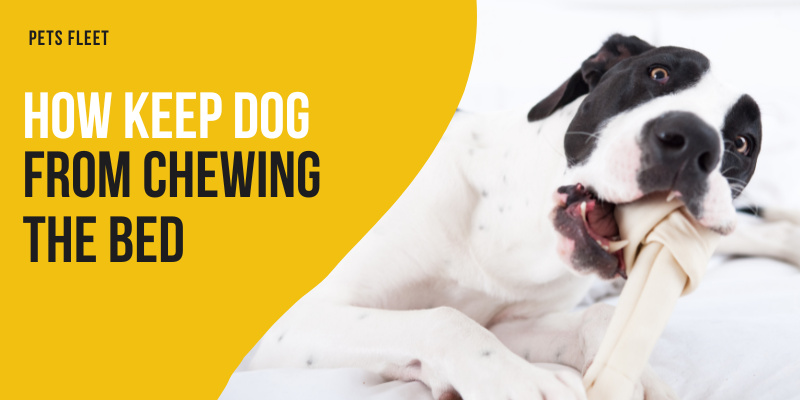
Are you constantly finding your beloved furry friend gnawing away at their bed, leaving behind a trail of shredded fabric? If so, you’re not alone. Many dog owners have experienced the frustration and exasperation that comes with trying to keep their dogs from chewing on their beds.
To prevent your dog from chewing the bed, offer engaging chew toys, use pet-safe bitter apple spray on the bed, and teach the “leave it” command. Redirect their chewing instincts and create a less tempting environment to break the habit.
But fear not! In this blog post, we will explore the causes behind this behavior and provide practical tips on how to keep your dog from chewing bed. So sit back, relax, and let’s put an end to those chewed-up messes once and for all!
What Causes Dogs To Chew Beds
Dogs chewing on beds can be a frustrating and destructive behavior. But before we dive into how to prevent it, let’s understand why dogs engage in this habit.
- One of the main reasons dogs chew on beds is teething. Similar to human babies, puppies go through a teething phase where they feel discomfort and itchiness in their gums. Chewing helps relieve these symptoms by providing them with something to bite down on.
- Another cause of bed-chewing can be anxiety or stress. Dogs may resort to chewing as a way to cope with these emotions. It provides them with an outlet for their nervous energy and temporarily distracts them from what’s bothering them.
- Boredom is yet another factor that leads dogs towards bed-chewing. When left alone for long periods without any mental or physical stimulation, dogs may turn to destructive behaviors like chewing out of sheer boredom.
- Additionally, some breeds are more prone to chew than others due to their natural instincts or high energy levels. Working breeds such as Labradors or Border Collies may have a stronger urge to chew compared to other breeds.
Understanding the underlying causes behind your dog’s bed-chewing will help you address the issue more effectively and find appropriate solutions tailored specifically for your furry friend’s needs.
How To Keep Dog From Chewing Bed – Complete Guide
Here some pawsitively effective steps to keep your dog from turning your bed into their personal chew toy. Let’s dive in!
Step 1: Choose The Right Chew Toys
Start by offering your pup a variety of safe and engaging chew toys. Dogs have a natural instinct to chew, so redirect that energy to something appropriate. Opt for durable toys like rubber chewies or puzzle toys that challenge their minds.
Step 2: Puppy-Proof The Bed
When you can’t supervise your pup, limit their access to the bed. Close the bedroom door or use baby gates to keep them away. Prevention is key!
Step 3: Teach The “Leave It” Command
Train your dog the “leave it” command. Hold a treat in your hand, let them sniff it, and firmly say “leave it.” Reward them when they back away. Practice this with bed corners or edges to discourage chewing.
Step 4: Make The Bed Less Tempting
Spray pet-safe bitter apple spray on the bed. The taste deters most dogs from chewing. You can also drape a blanket over the bed to create a barrier and reduce temptation.
Step 5: Tire Them Out
A tired dog is a well-behaved dog! Make sure your pup gets enough physical and mental exercise daily. A tired dog is less likely to chew out of boredom.
Step 6: Provide Enrichment
Set up an enriching environment for your dog. Puzzle toys, treat-dispensing toys, and frozen Kong toys can keep their minds engaged and away from bed-chewing thoughts.
Step 7: Offer Positive Reinforcement
Catch your pup in the act of not chewing the bed and shower them with praise and treats. Positive reinforcement reinforces good behavior.
Step 8: Use Citrus Scents
Dogs often dislike the smell of citrus. Place orange or lemon peels on the bed to make it less appealing.
Step 9: Investigate Any Underlying Issues
If your dog’s bed-chewing habit persists, consider whether anxiety, teething, or dental problems might be causing it. Consulting a vet can help rule out any underlying issues.
Step 10: Be Patient And Consistent
Breaking a habit takes time, so be patient with your pup. Consistency is key in teaching them that chewing the bed is a no-no. Keep practicing the steps and celebrating their progress!
Remember, curbing bed-chewing takes a blend of patience, positive training, and a sprinkle of creativity. With these steps, you’ll be well on your way to a bed-safe haven and a happier, healthier bond with your furry friend. Sweet dreams – for both of you!
Training Your Dog Not To Chew Bed
When it comes to preventing your dog from chewing the bed, training plays a vital role. By teaching them appropriate behaviors and providing alternative outlets for their energy, you can help curb this destructive habit.
- Consistency is key. Set clear boundaries and enforce them consistently. If you catch your dog in the act of chewing the bed, firmly say “no” and redirect their attention to an appropriate chew toy or bone. Reward them with praise or treats when they choose these alternatives.
- Positive reinforcement is crucial in training dogs not to chew on beds. Provide plenty of toys and interactive puzzles that keep them mentally stimulated and entertained. Make sure these toys are specifically designed for chewing, as they will satisfy their natural instinct without damaging your belongings.
- Additionally, consider crate training as a way to prevent unsupervised access to the bed during times when you cannot closely monitor your dog’s behavior. This creates a safe space where they can relax without temptation.
Remember that patience is key during this process; changing habits takes time. Consistent training combined with positive reinforcement will help teach your furry friend what is acceptable behavior when it comes to chewing on beds.
Rewards And Punishments For Chewing The Bed
Rewards and punishments play a crucial role in training your dog not to chew on the bed. Positive reinforcement is always more effective than punishment when it comes to modifying behavior.
- When your dog shows good behavior by not chewing on the bed, be sure to reward them with praise, treats, or a favorite toy. This reinforces their understanding that this is the desired behavior. It’s important to use rewards consistently and immediately after they exhibit the desired behavior.
- On the other hand, punishments should be avoided as much as possible. Punishing your dog for chewing on the bed may create fear and anxiety, which can worsen their chewing habit or lead to other behavioral issues. Instead of punishment, redirect their attention towards an appropriate chew toy or engage them in a fun activity whenever they show an interest in biting or chewing on the bed.
Remember that every dog is unique, so finding what works best for your canine companion may require some trial and error. Stay calm yet firm during training sessions and focus on reinforcing positive behaviors rather than dwelling on negative ones.
Natural Remedies For Chewing Deterrents
If your furry friend has developed a habit of chewing on your bed, don’t fret! There are several natural remedies that can help deter them from this destructive behavior.
- One effective remedy is using bitter apple spray. This non-toxic spray has a strong smell and taste that dogs find unpleasant. Simply apply it to the areas of the bed where your dog likes to chew, and they will quickly learn to associate the scent with an undesirable experience.
- Another option is to use citrus-scented products. Dogs tend to dislike the smell of citrus fruits such as oranges or lemons. You can try rubbing some lemon or orange peel on the edges of the bed or using essential oils diluted with water in a spray bottle.
- Some pet owners have also found success with vinegar solutions. Mix equal parts water and white vinegar in a spray bottle and apply it to the areas your dog chews on. The sharp odor of vinegar may discourage them from continuing their chewing spree.
- If you prefer a more hands-on approach, you could also try creating homemade deterrent sprays using ingredients like cayenne pepper mixed with water or apple cider vinegar combined with garlic powder.
Remember, consistency is key when using natural remedies for chewing deterrents. It may take some trial and error to find what works best for your pup, but with patience and perseverance, you can help redirect their chewing instincts away from your beloved bed!
Conclusion
Dealing with a dog that chews on their bed can be frustrating and destructive. However, by understanding the reasons behind this behavior and implementing effective training techniques, you can successfully prevent your furry friend from chewing on their bed. By following these tips and techniques consistently, you’ll soon find that keeping your dog from chewing their bed becomes a manageable task. Remember to stay positive, offer plenty of love and attention, and seek professional guidance if needed.
FAQs
Why does my dog chew its bed?
Dogs may chew their beds due to natural instincts, teething discomfort, boredom, anxiety, or a need for sensory stimulation. Providing appropriate chew toys, regular exercise, and addressing any underlying issues can help redirect this behavior.
How do I stop my dog from chewing on furniture when left alone?
To prevent your dog from chewing on furniture when left alone, provide plenty of engaging chew toys and puzzle feeders to keep them occupied. Use pet-safe bitter sprays on furniture surfaces and gradually extend their alone time to build their confidence. Consider crate training as a safe space while you’re away.
What repels dog chewing?
Bitter apple spray, citrus scents, and pet-safe deterrent sprays are effective at repelling dog chewing. These options emit tastes or smells that dogs find unpleasant, discouraging them from chewing on objects like furniture or belongings.
What scent do dogs hate?
Dogs often dislike the scent of citrus fruits like oranges and lemons due to their strong and sharp aroma. Additionally, the smell of vinegar can also be unpleasant for dogs. These scents can be used strategically to deter dogs from certain behaviors or areas in the home.
Does vinegar stop dogs from chewing?
Vinegar’s strong scent can discourage some dogs from chewing due to its unappealing smell. However, its effectiveness varies among dogs, and it’s important to ensure the vinegar is safe and properly diluted before using it as a deterrent.

